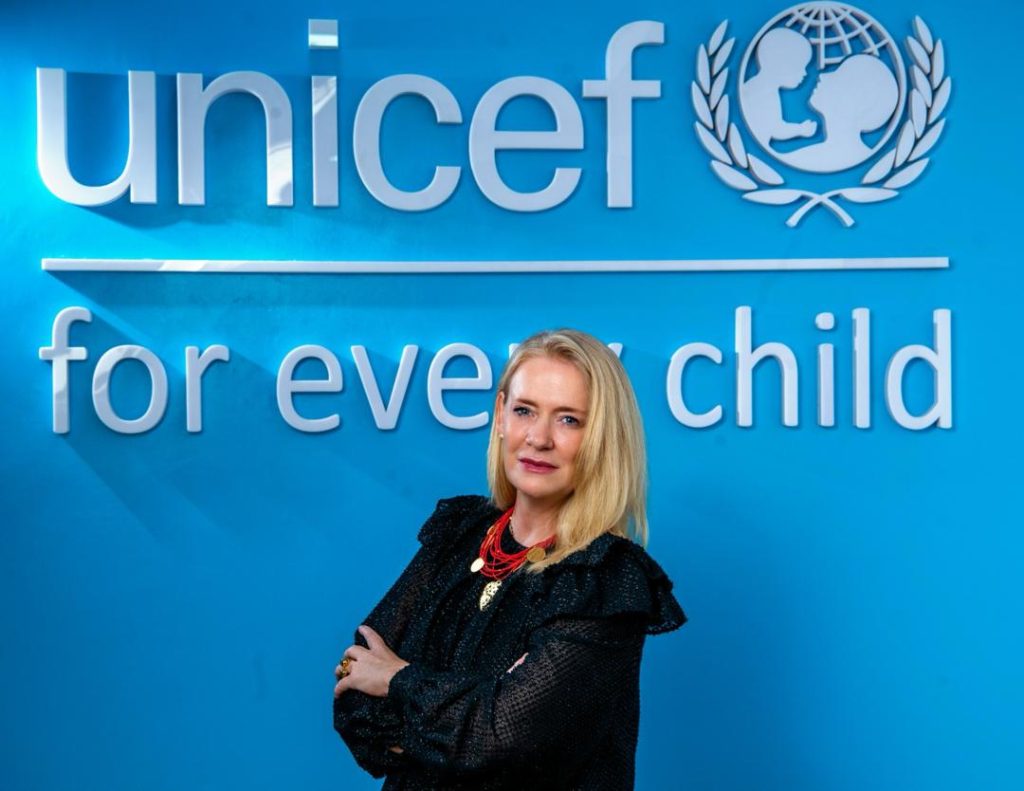By Dayo Johnson & Rotimi Ojomoyela
The United Nations Children’s Fund (UNICEF) has called for urgent collective action to end Female Genital Mutilation (FGM) in Nigeria, describing it as a grave violation of the rights of women and girls.
Speaking at a two-day media dialogue organized by the Oyo State Ministry of Information and Orientation in collaboration with UNICEF held in Benin, Edo State, the Chief of the UNICEF Lagos Field Office, Celine Lafoucriere, said more than 20 million women and girls in Nigeria have undergone FGM, with the majority cut before their sixth birthday.
Lafoucriere noted that at such a young age, they are completely powerless and unable to resist or even understand what is happening to them.
She stressed that no tradition or cultural practice should endanger the health, dignity and future of girls, while also highlighting the crucial role of the media in amplifying survivors’ voices, challenging harmful practices and inspiring families to make different choices for their daughters.
According to her “FGM is a violation inflicted on women and girls . Over 20 million women and girls in Nigeria have undergone FGM.
“Most of them were cut before their 6th birthday and at that stage, they are completely parallel, where they can’t resist or even understand what is happening to them.
“Despite the uproar in Nigeria, this harmful practice continues to persist in many communities through myths and traditions.
“No customs or culture should ever come at the expense of girls’ health or their future.
“The good news is that change can happen through collaboration like the movement and initiative led by the federal government in collaboration with UNICEF, millions of Nigerian people have already pledged to protect girls from being cut. Survivors are leading the way and young people are demanding for a better future.
“This is where the media comes in to amplify survivor’s voices and challenge harmful practices and to inspire families to choose differently for their daughters. Use your reach, platforms and creativity to ensure that every single girl in Nigeria is free from FGM”.
The two-day event, brought together experts, advocates and media stakeholders to strengthen advocacy and mobilize resources towards eliminating FGM across the country.
Earlier, Blessing Ejiofor, Communication Officer UNICEF, said that ” the aim of this gathering is to equip the media with comprehensive knowledge about FGM’s devastating impact on women and girls’ rights and wellbeing.
Ejiofor added that “Secondly, to provide the media with the tools and materials needed to amplify advocacy efforts across Southwest Nigeria’s highest prevalence states.
Mr Denis Onoise, the Child Protection Specialist, UNICEF, Lagos Office, highlighted the magnitude of the crisis, noting that Nigeria ranks third globally in the prevalence of FGM, with projections suggesting that numbers could rise by over 50 percent if urgent interventions are not scaled up.
He pointed out that myths sustaining the practice continue to fuel its persistence, with alarming statistics showing that more than half of sex workers in Nigeria have been subjected to mutilation.
An FGM Consultant, Aderonke Olutayo, emphasized on the need to dispel deep-seated misconceptions about the practice.
Olutayo explained that many communities wrongly believe FGM prevents promiscuity, while others perpetuate myths about sexual satisfaction.
She urged faith leaders, parents and community influencers to challenge harmful narratives and prioritize the wellbeing of girls and women.
Speaking on the critical role of the media, the Oyo State Permanent Secretary, Ministry of Information, Rotimi Babalola, emphasized the need for media professionals to step up their role in raising awareness and shaping public opinion.
Babalola said “The media is very critical because you set the agenda for society to follow. We need to put extra effort into this campaign so that, in all the states covered by UNICEF, we totally eliminate FGM,”
He urged journalists to report with sensitivity, avoiding sensational coverage that could traumatized survivors, while still educating the public and holding stakeholders accountable.
The Program Manager of Balm in Gilead Foundation for Sustainable Development (BIGIF), Nelson Akerele, said that cross-sector collaboration remains crucial to achieving the elimination goal.
While calling for active action from the media practitioner, Akerele, identified five ways the media can strengthen the campaign against FGM which include follow up cases and holding duty bearers accountable.
According to him “using investigative journalism to expose cutters and medical practitioners involve supporting survivors with positive and hopeful narratives, educating the public to dispel myths and misconceptions and developing gender-sensitive stories that protect survivors from further harm.
The post UNICEF urges collective action to end female genital mutilation appeared first on Vanguard News.

